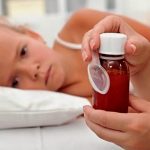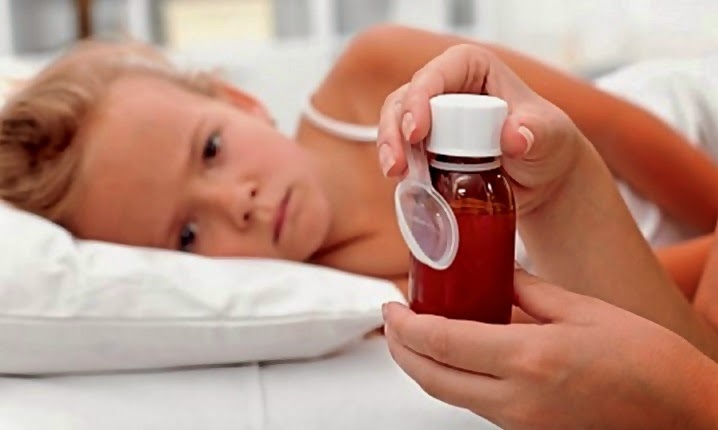
Self-medication to children, dangers and consequences in your child
Self-medication is not recommended at any age,but in children it is even less so. Even if you have medications at hand at home, you should take your child to see a pediatrician before giving him or her any medications.
A medical professional will provide specific guidance on how to treat your child’s symptoms. Self-medication in children is a very dangerous and inconsentable habit. However, despite the risks involved in this practice, it is very common for parents to give their children medicines without first consulting a professional.
Self-medicated children: a dangerous habit.
Self-medication is the administration of medicines or natural remedies without the supervision of a medical expert. Side effects of this practice can put your health at risk, both in the short and long term. In some cases, self-medication can even be fatal. Parents often treat a simple stomach pain with the wrong painkiller. Another common mistake is when parents give antibiotics to their children when they have a fever, without first seeing a doctor.
The right person to treat children’s ailments is a pediatric specialist. Only a pediatrician has the knowledge and training to make a proper diagnosis and decide on the right treatment. You should never compare your symptoms to other children’s symptoms, or make the information you can search the Internet for decisive.
Antibiotics
Many parents, when they take their child to the doctor for conditions such as flu, viral infections, a sore throat or a cold, automatically expect a medication, usually antibiotics, to be prescribed. And they get missed and even get angry, if they leave the doctor’s office empty-handed.

Frequent and inappropriate use of antibiotics can change bacteria or other microbes, so antibiotics are no longer useful in fighting them. This is called “bacterial resistance” or “antibiotic resistance”. Fighting these resistant bacteria requires higher doses of stronger drugs or antibiotics. Due to antibiotic abuse, some bacteria have become resistant to even the most potent antibiotics that exist today.
For example, with viruses, the immune system is able to fight some viruses before they get sick to the body, but there are other viruses (such as those that cause colds) that must follow in their course. Antibiotics are not used to fight viruses.
In the case of bacteria, antibiotics are effective but it is important to note that: bacteria are living microorganisms that exist as independent cells. Bacteria are everywhere and most do not cause any harm; in some cases, they are even beneficial. Lactobacillus bacteria, for example, live in the gut and help digest food.
But some bacteria are harmful and can cause disease when they invade the human body, multiply and interfere with the body’s normal processes. Antibiotics are effective against bacteria because they work by killing these microorganisms by preventing them from growing and reproducing.
Administration

Medications take a while to take effect,so don’t expect it to be better after taking the first dose. Most children take 1 to 2 days to feel better. Also, don’t let your child take antibiotics for more days than prescribed.
Never use any traces of antibiotics you have around your house. Don’t ever give him antibiotics that were prescribed for another family member, whether child or adult.
Saving antibiotics “for next time” is also a bad idea. Any remaining antibiotics should be removed as soon as possible when the child finishes treatment.
Over-the-counter drugs
If your child doesn’t have any illnesses, if he or she isn’t being treated with other medications and is a banal process, self-medication with some symptomatic relief drugs (fever, pain…) is not a risk. In fact, public health objectives are the training of the population, in our parent environment, in the autonomy of their health care in banal ailments.

Thus, the use of some drugs, such as acetaminophen to relieve fever, pain or discomfort, may be justified. In these cases, the recommendations contained in the package leaflet should be followed to avoid treatment with inadequate doses, both by excess, and thus the risk of poisoning, and by default, the consequence of which would be not to relieve symptoms but to expose the child to the adverse effects of the drug.
If your child is being treated with other drugs, or if he or she has a chronic illness, it is recommended that you consult with your pediatrician or pharmacist before administering other medicines.
It is also important to note that over-the-counter medications and dietary and herbal remedies are still medicines,with their active substance, so you should be very responsible and cautious in your dosage and administration.
Some of the many reasons why not medicate children
Why isn’t it good to self-medicate my son?
– Dose errors. Studies say that three out of ten self-medicated children do not receive the correct dose, either by excess or by default. While when the dose is higher than indicated there is a danger of poisoning, otherwise the risk is that the medicine does not have the desired effect.

– Excess antibiotics. Some parents mistakenly self-medicate their children with antibiotics to treat viral processes. Excess of this medicine can cause the child’s body to create resistance to it and when it needs to be administered to treat an infectious process, it is no longer effective.
– Adverse reactions. Some drugs, if not administered at the correct dose or do not correspond to treat a certain pathology, may cause some adverse reactions in small ones, such as rashes, vomiting or diarrhea.
– Resistance. As we said, continued use, especially misuse, such as poor dosing, generate increasingly resistant bacteria. It is estimated that by 2050, bacterial resistance will be one of the leading cause of death.
Unfortunately, self-medication in children is a much more common practice than many believe. Therefore, it is necessary for parents to become aware of the dangers of this problem. No matter if parents work or have little time, you should always do what it takes to take your child to the doctor when symptoms appear.
Let’s remember that it’s the health of our children that’s involved, and even something that might seem harmless can be dangerous. Self-medication is not trivial at all, and knowing the potential risks is very important.
All the information we give you in this article is indicative since each person is different so to establish a diagnosis and treatment it is essential that you go to your doctor.
Carolina González Ramos
Edda Virtual Solutions
Do you have any questions or comments? Write!
You may also like:















